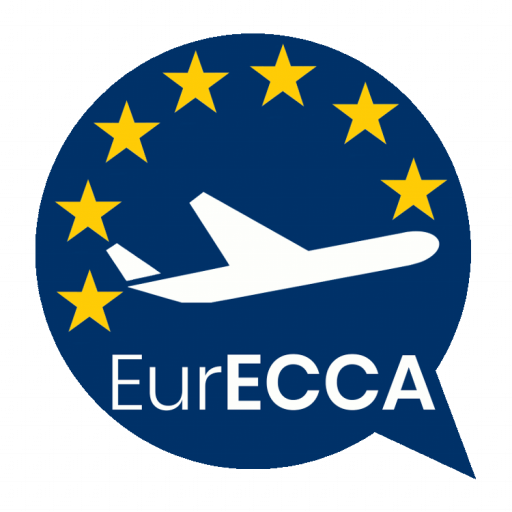Reduced Crew Operations – An Erosion of Aviation Safety
As the European Cabin Crew Association, EurECCA, the leading voice of cabin crews in the European Union, we fully support the global coalition formed by the International Federation of Air Line Pilots’ Associations (IFALPA), the European Cockpit Association (ECA), and Air Line Pilots Association, Int’l (ALPA) to prevent airlines, manufacturers and regulators from removing pilots from the flight deck.
EurECCA who represents over 33,000 cabin crews’ members in the European Union recognizes the importance of having adequate numbers of aircrew on board of an aircraft – including at least two qualified, experienced, trained and rested airline pilots in the cockpit at any time of the flight. This is crucial for the safe operation of an aircraft. EurECCA firmly believes that the proposed reduced-crew operations pose an unacceptable level of safety risk to commercial aviation to cabin crews and passengers.
Aviation has achieved its position as the safest transportation system in history by learning from its mistakes and continuously improving flight safety standards. With over a century of commercial flights, the ultimate goal of technological and regulatory developments should not only be maintaining but enhancing aviation safety, particularly given the expected post-crisis growth in air traffic that necessitates a constant improvement in safety levels.
However, there are significant concerns regarding the draft EASA concepts of the extended Minimum Crew Operation – eMCO – and Single Pilot Operation – SiPO –, both of which envisage the reduction of the number of highly qualified safety professionals such as the pilots from the flight deck, raising serious concerns about the negative impact on flight safety.
The extended Minimum Crew Operations concept (eMCO) aims to stretch the maximum flight time limitations. To achieve this, only one pilot would be required to remain at the controls for extended periods of the cruise phase, while the other pilot would be resting.
The next intended step for the industry is Single Pilot Operations (SiPO), which means that there will only be one pilot onboard at any given time during flight, including critical phases of flight such as takeoff and landing.
While technology has advanced significantly in recent years, it is not a substitute for the skills and experience of pilots. The ability to respond to unforeseen circumstances and emergencies requires human judgment and decision-making that technology cannot replace. Two pilots in the cockpit provide a critical onboard backup for failed systems, bridge technology gaps, and adapt to unanticipated situations and emergencies in real-time.
Moreover, as cabin crews, we work closely with pilots in the same aircraft and practice in every flight the importance of a cohesive team working together on the flight as well as cabin crew interacting with this team, both during normal and abnormal situations.
According to EurECCA, important considerations must be taken into account when assessing the general feasibility of such a change, in particular the aspect relating to the importance of the “human factors”. The risks of delegating such variable and complex operations to Artificial Intelligence lack and will always lack the factor of unpredictability. Human factors are not part of Artificial Intelligences’ DNA.
As cabin crews, we are experienced to face a range of risks and challenges that require effective policies and safety procedures in coordination with pilots’ actions and especially in case of any unforeseen safety event. Having a broader view of the situation the pilots can provide us important information about the status of the flight and any potential safety issues.
From sign on to sign off, coordination between cabin crews and pilots is a guarantee for safety. All phases of a flight require precise dialogue and safety checks related to safety procedures such as turbulence, medical emergencies, fire, flooding, unruly passengers, preparation of the cabin in case of an emergency evacuation, pilot incapacitation are just examples which carry a huge safety risk potential.
The hypothetical presence of a single pilot assuming mainly the role of supervisor could therefore dangerously undermine the current balance based on the delegation of activities and command leadership between pilots and cabin crews.
If mandatory safety procedures and human factors are not taken into account in the development of these concepts, the foundations of the industries’ century-long safety record are simply ignored.
Reason why EASA as a regulator must also include EurECCA cabin crew representatives in the development of these concepts and consider our point of view and expertise in order to maintain and increase safety standards.
EurECCA also shares the view that the drive to reduce the number of crew members in the cockpit is a profitdriven strategy. In the past six months, the aviation industry has witnessed an aggressive corporate-led campaign aimed at convincing regulators worldwide to reduce crew members on board of commercial flights under the pretext of technical progress.
As a European Union association representing cabin crew members, we are committed to working with our pilot colleagues and other aviation stakeholders to ensure that the current standards that have made aviation the safest form of transportation in the world are not eroded. EurECCA stands with the global pilot community in their fight against reduced-crew operations, and will do everything in its power to ensure that at least two pilots remain in the cockpit to ensure safe air travel and the highest standards of safety are maintained in commercial aviation.
EurECCA represents, protects and develops the rights and needs of all cabin crew all over Europe
Acting Together – Protecting Each Other
Reduced Crew Operations An Erosion of Aviation Safety – PDF


